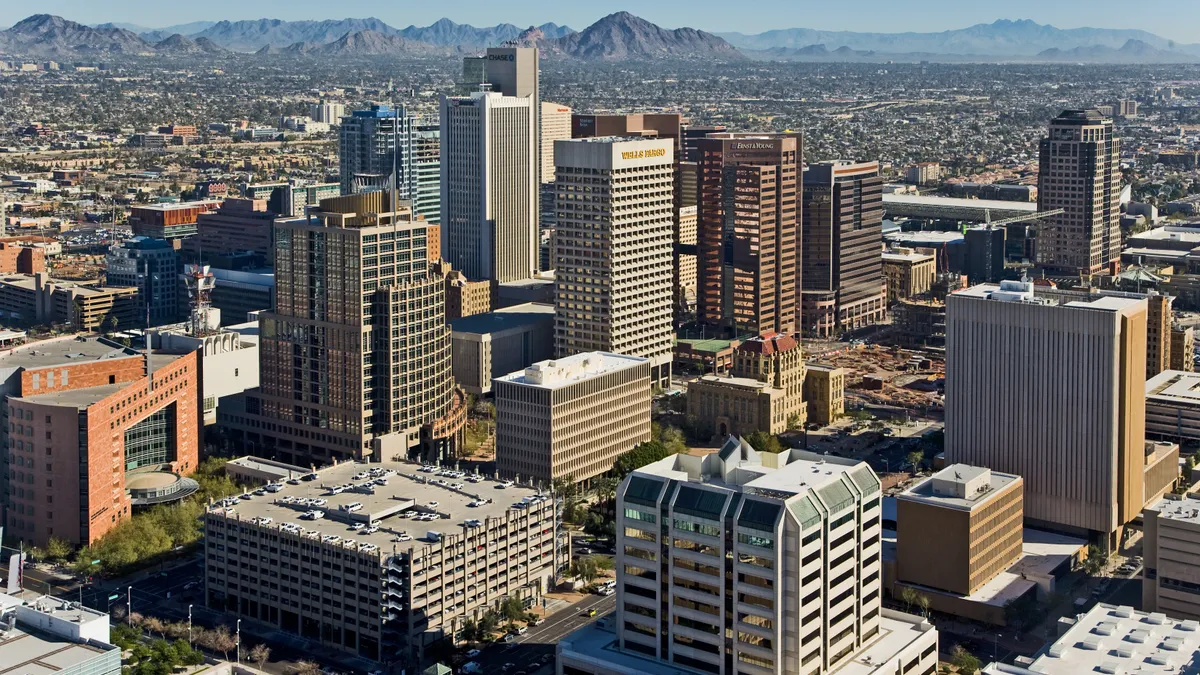Dive Brief:
- Mortenson, which just broke ground on an 11-story Hampton Inn & Suites in downtown Phoenix, has proposed the construction of a 20-story apartment building next door, according to the Phoenix Business Journal.
- The uptick in residential high-rise and multifamily development in Phoenix has been a lightning rod for critics who argue that it is forcing out the arts community in some areas. Others have filed suit against the city for granting tax subsidies for such projects.
- If approved by Phoenix Planning and Development, Mortenson said it could begin construction of the apartment building in the fourth quarter of this year and complete the tower in the middle of 2019.
Dive Insight:
Development in downtown Phoenix is also getting a considerable boost from the Valley Metro Rail system, launched in 2008. Albert Santana, director of high capacity transit for the City of Phoenix, told Construction Dive last month that the city has seen about $9 billion in economic development around Metro stations, and Hillary Foose, director of communications and marketing for the Valley Metro, said growth of the system has already achieved its 20-year goal of 50,000 riders a day.
The city encourages high-density development around the stations, as most transit-oriented developments do, in an effort to ensure a steady supply of riders. However, that philosophy often opens up a target for anti-development protestors who say that high-density projects change the character of neighborhoods and that the luxury price tags of the new residential units make continuing to live in the area impossible for low-income residents.
Los Angeles recently emerged from a battle on this front, with developers winning the day. Earlier this month, residents voted against enacting a two-year ban on zoning changes that are necessary to build most-large-scale city projects. Developers argued that limiting residential development in the city would only exacerbate its affordable housing crisis.
On a positive note for those who lobbied for the Neighborhood Integrity Initiative, or Measure S, the furor leading up to the vote resulted in some changes they wanted as part of the legislation. Developers must now use a pre-approved vendor to help them write their projects' required environmental reviews, and the Los Angeles City Council will update community plans every six years.











